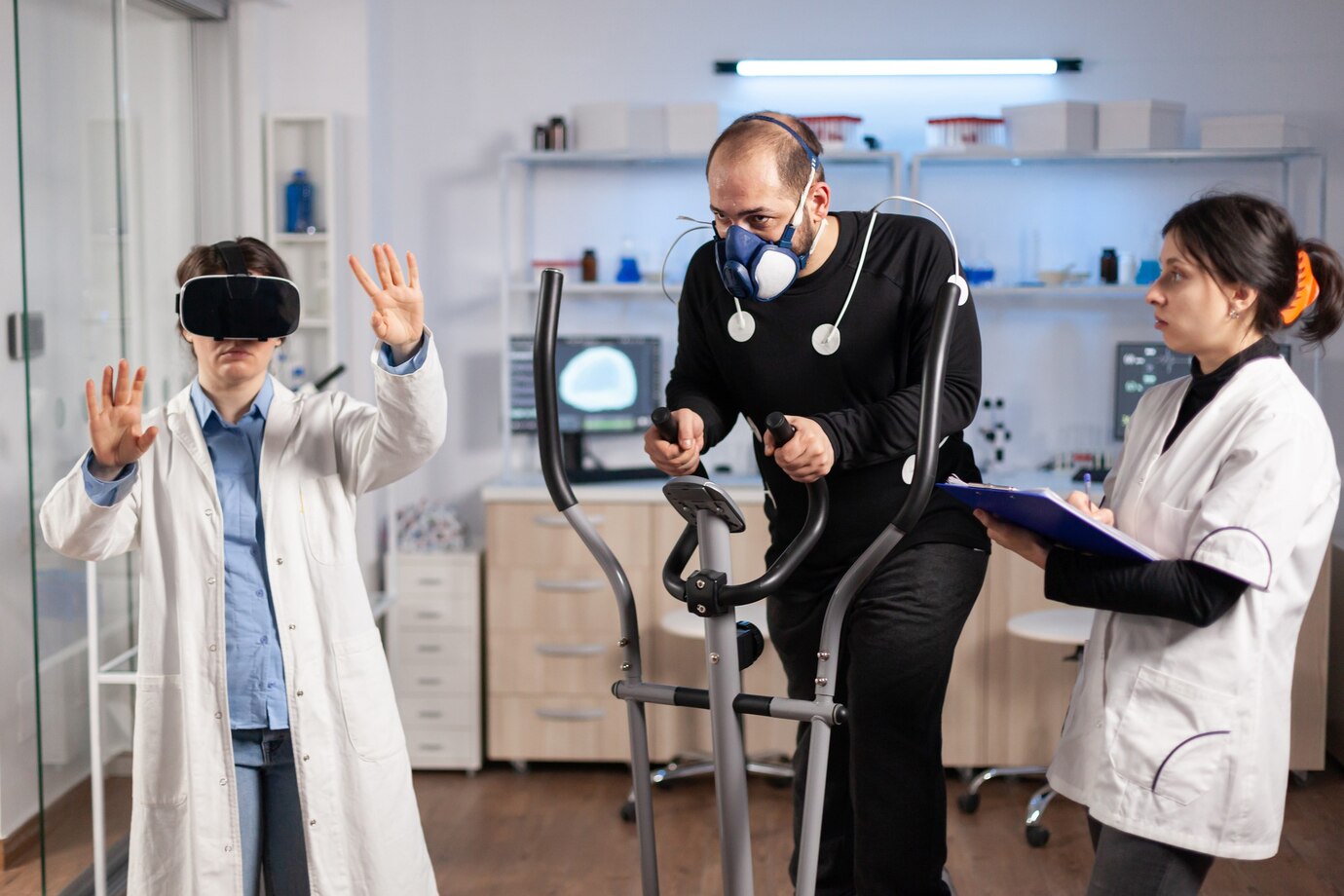Virtual Reality in Healthcare Marketing: Immersive Experiences for Patient Education
The healthcare industry is continually evolving, and marketing strategies are no exception. Read More
Enhanced Understanding Through Visualization One of the most significant advantages of VR in healthcare marketing is its ability to transform abstract or complex concepts into tangible experiences. For instance, explaining a surgical procedure or the anatomy of a human body can be challenging through traditional means. However, VR allows patients to visualize these concepts in a 3D space. They can explore a virtual representation of their own body, understanding how diseases or treatments affect them. This level of visualization can demystify medical procedures and conditions, making patients more comfortable and informed about their healthcare decisions. Interactive Simulations VR can create interactive simulations that allow patients to participate in their learning process actively. For example, a VR simulation can guide patients through the steps of managing chronic conditions like diabetes or asthma. By engaging with these simulations, patients can practice administering medications, adjusting their diet, or performing exercises in a risk-free environment. This hands-on approach can improve retention and understanding of vital health information, empowering patients to manage their health more effectively. Personalized Patient Experiences Personalization is a key factor in effective healthcare marketing. VR can offer personalized experiences tailored to an individual patient’s needs and medical history. For example, a cancer patient can use VR to explore their treatment plan, understanding each step of their journey from diagnosis to recovery. Personalized VR experiences can also include relaxation techniques or guided meditations designed to reduce anxiety before a procedure. By addressing specific patient concerns and needs, VR can enhance engagement and build trust between patients and healthcare providers. Emotional Connection and Empathy VR has a unique ability to evoke emotional responses and foster empathy. Healthcare marketers can use VR to create scenarios that help patients understand what it’s like to live with certain conditions. For example, a VR experience can simulate the daily challenges faced by individuals with disabilities, chronic pain, or mental health conditions. By experiencing these simulations, patients and caregivers can develop a deeper understanding and empathy for those affected, promoting a more compassionate approach to healthcare. Virtual Tours of Healthcare Facilities One practical application of VR in healthcare marketing is providing virtual tours of healthcare facilities. Prospective patients can use VR to explore hospitals, clinics, or wellness centers from the comfort of their homes. These virtual tours can highlight state-of-the-art equipment, patient care areas, and amenities, helping patients feel more comfortable and confident in their choice of healthcare provider. VR tours can also be particularly beneficial for patients with mobility issues or those living in remote areas. Educational Campaigns and Workshops Healthcare marketers can use VR to enhance educational campaigns and workshops. For instance, a VR campaign on preventive care can immerse patients in scenarios where they learn about the importance of regular check-ups, vaccinations, and healthy lifestyle choices. Workshops on topics like prenatal care, smoking cessation, or heart health can become more engaging and memorable with VR simulations. These campaigns can be distributed through VR headsets at healthcare facilities or even through mobile VR applications, reaching a broader audience. Virtual Reality is transforming healthcare marketing by providing immersive, engaging, and educational experiences for patients. By leveraging VR, healthcare marketers can enhance understanding, improve patient engagement, and foster empathy. As technology continues to advance, the potential applications of VR in healthcare will only grow, offering even more innovative ways to educate and connect with patients. Integrating VR into healthcare marketing strategies not only benefits patients but also positions healthcare providers as forward-thinking and patient-centric. By embracing these immersive technologies, the healthcare industry can ensure that patients are well-informed, engaged, and empowered to take control of their health. The future of healthcare marketing is here, and it is virtual, immersive, and incredibly impactful. The Power of Immersive Learning
Improving Patient Engagement
Practical Applications in Healthcare Marketing
Conclusion

